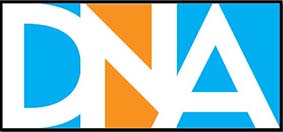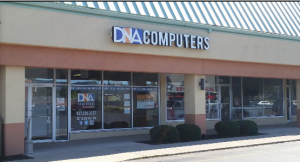It’s a recurring theme these days, companies, organizations, and even individuals are being targeted online through malicious software designed to capture data and information about how these devices operate. There’s no question that in today’s world, being secure online is more important than ever. We understand that being safe online can be a daunting challenge, so we have some tips to help you be as safe as possible. We recommend focusing on three areas to be as safe as possible online: your web browser, your antivirus, and your credentials.
- Your Web Browser
No matter what kind of device you have to surf online, your choice of web browser has a huge impact on how secure you appear online. Your web browser is whatever program or app you use to surf the internet and go to websites on the internet. You’re probably familiar already with Microsoft Edge (Windows 10) or Internet Explorer (Windows 7). These are the built-in web browsers that come with Windows. We absolutely do not recommend using these programs to browse the internet. Both Edge and Internet Explorer are heavily integrated into the way Windows operates. This is a problem, because any issues that affect these programs will affect your computer, and vice versa.Microsoft Edge (and Internet Explorer, by extension) lag behind other browsers significantly in terms of resilience against hackers. In the recent Pwn2Own hacking competition, “Microsoft Edge ended up being the worst browser in terms of getting hacked”. Which browser was the winner? Google Chrome. Using a more secure browser like Google Chrome is an easy first step to be more secure online. Google Chrome can be downloaded for free here. Google Chrome is also available for iPhone, iPad and Android, and we recommend using it for your mobile devices, as well.
- Your Antivirus
While your web browser can be considered the first line of defense in fending off malicious hackers, the next line of defense is your antivirus. A virus is a broad term that can generally refer to any piece of malicious software that is trying to get something from you -whether you know it is on your computer, or not. Running a modern antivirus is crucial to keeping your computer safe and operating well. But there are so many antivirus solutions out there, how do you tell which is the best? We recommend taking a look at AvTest.org, an independent organization that conducts security tests of all the top available antivirus solutions. They conduct tests on a monthly basis, and generally any in the top 5 will be an adequate choice, so if one program in the top 5 appeals to you over the others, feel free to use it (we like Avira because of its low system overhead, but some may prefer a more familiar name like AVG). Many of these programs have free versions that will be just fine for the vast majority of users. It’s important to note that established solutions like Norton, McAfee, Trend Micro, and Kaspersky, all appear at the bottom of the list, so stay away from these programs.
- Your Credentials
If you’re on a modern web browser like Google Chrome or Microsoft Edge, chances are you’ve encountered a situation where the browser has asked if you’d like to save your passwords and logins on websites so that you can be immediately logged in as soon as you return to the site. While this convenience cannot be discounted, the fact of the matter is that this is a very insecure way to store the logins and passwords that access your most sensitive accounts online. In fact, anyone that gains access to the computer can easily pull this information from the browser. The best way to protect yourself in this regard is by using a password manager. A password manager will store all of your passwords and logins behind an encrypted wall, with the only way to access these in the first place being a strong master password. A password manager can also help you generate secure passwords and store them for later use. This article lists five of the most popular password managers (many of them are free to use), using any one of these will dramatically increase your security online.
Being secure online doesn’t just happen. It’s up to you to protect yourself from malicious hackers around the world. By using a more secure web browser like Chrome, a sophisticated antivirus, and a password manager, you can protect yourself while you go about your business online, and it doesn’t have to cost you anything! Don’t hesitate, hackers work around the clock all over the world, and they are looking for the easiest targets. Don’t be an easy target. Protect yourself today!
By Winston Cronenwett
Business Manager for DNA Computers




